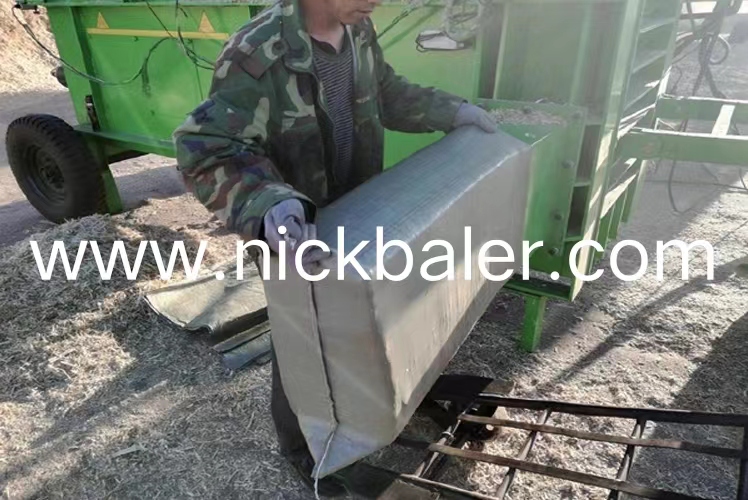


Do you have a limited budget but urgently need a Alfalfal Hay Baling Machine? Buying used equipment is a practical and wise option, offering increased productivity at a fraction of the cost of a new machine. However, the used market is treacherous, and a seemingly intact machine could harbor issues that could shut down your entire harvest season. Thus, before you part with your money, it's crucial to conduct a thorough and detailed inspection. What should you focus on? First, the most intuitive aspect is a visual inspection. Observe the overall structure of the machine, especially the frame and compression chamber (the "iron box" of a square baler or the forming chamber of a round baler) for visible cracks, weld repairs, or severe rust. This is crucial to the machine's structural integrity and safety. Carefully inspect the pickup for missing or severely worn tines, which directly impact operating efficiency. Secondly, the key lies in "core component testing." For a square baler, the heart and soul lies in the knotter. Ask the seller to demonstrate baling in person, observing whether the knotter's movements are smooth and powerful, and whether the knots are secure and consistent. Try baling several bales in a row and measure the success rate. If the failure rate exceeds 5%, exercise extreme caution. Also, check the compression piston for wear and see if there's excessive clearance between it and the compression chamber wall. For round balers, focus on checking the forming belt or rollers for wear, and whether the net/rope wrapping system is operating smoothly and evenly. Start the machine and listen for any unusual banging or grinding noises during operation; these are often precursors to bearing or gear problems. Third, the hydraulic system shouldn't be overlooked. Check all hydraulic cylinders for leaks and piping for signs of wear. During operation, observe whether the cylinders operate smoothly and without vibration. Fourth, records and history are equally important. If possible, inquire about the previous owner's usage, the approximate annual workload, and any major repairs. A well-maintained, documented machine is far more reliable than a "refurbished" machine with an unknown origin. Finally, consider: Do I have the repair capabilities to handle potential emergencies with used equipment? Can I find spare parts for this older model? Through careful inspection and assessment of your own abilities, you can find real treasures in the second-hand market instead of buying a "trouble".

Nick Baler's Alfalfal Hay Baling Machine offer a high-efficiency solution for compressing, bagging, and sealing lightweight, loose materials, including agricultural waste, sawdust, wood shavings, textiles, fibers, wipers, and biomass waste. By converting loose materials into compact, easy-to-handle bags, these machines ensure efficient storage, improved cleanliness, and minimized material loss. Whether you're in the livestock bedding industry, textile recycling, agricultural processing, or biomass fuel production, Nick Baler's advanced bagging balers help streamline operations by reducing waste volume and improving material handling. With over 20 years of experience, we deliver customized solutions that enhance efficiency, durability, and automation in material packaging.
Industries Using Alfalfal Hay Baling Machine
Animal Bedding Suppliers – Bagged wood shavings and sawdust for horse stables and livestock farms. Textile Recycling – Efficient packaging of used clothing, wipers, and fabric waste for resale or disposal. Biomass & Biofuel Producers – Compacting straw, husks, and biomass waste for energy production. Agricultural Waste Management – Handling straw, husks, corn stalks, and dried grasses efficiently. https://www.nickbaler.com Email:Sales@nkbaler.com WhatsApp:+86 15021631102
The product has been exported to over 60 countries and regions both domestically and internationally
Shaanxi Nick Machiney Equipment Co.,Ltd
East Qunsheng Road Wuxi City,Jiangsu,China
We will contact you within 24 hours. ( WhatsApp/facebook:)